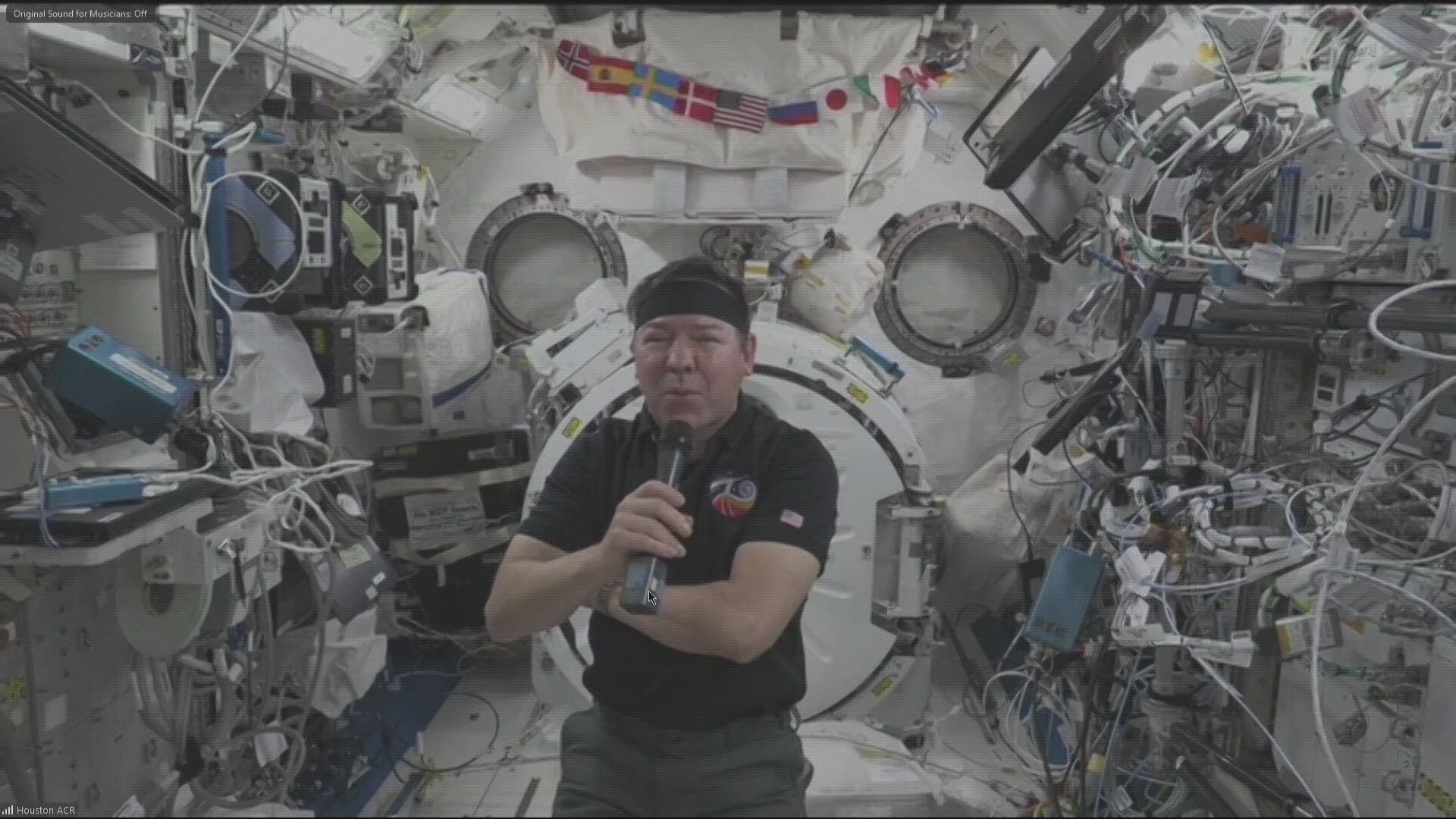CAMAS, Wash. — Orbiting the earth at more than 17,000 miles an hour, the International Space Station is a science laboratory like no other. The ISS is located 250 miles above the Earth and completes a full rotation around the planet every 90 minutes.
"Being a science weenie, I'm kind of a kid in a candy store up here, doing every kind of science experiment you can possibly imagine," NASA astronaut Dr. Michael Barratt said as he floated in zero gravity aboard the ISS.
Dr. Barratt was born and raised in Camas and graduated from high school there. He's one of seven crew members currently living on the ISS. In early March, Barratt was part of Expedition 70 and will spend six months studying everything from physics and biology to the effects of space on the human body.
"I would have to say every system in the body changes when it gets into zero gravity — mostly it's the body adapting to get to a place where it wants to be when there's no gravity," Barratt said. "So that includes losing maybe 15% of your blood volume and red blood cells and your heart changes shape, changes position. You get a little taller, your waist gets a little thinner. Sounds great, although you pay for that at the end. Your immune system changes and the way blood flow is regulated changes and that's just about half of what really happens."
Barratt has been here twice before, first in 2009 and then again in 2011. He says some of the tools they use are better and procedures to get a task done are quicker because of the advances in technology.
"The station is still this wonderful old station I remember — it's big, it's capable," he said. "It's very international. The food is about the same; I like the food, and the camaraderie around the galley table is great."
According to Barratt, his love of astronomy started young. He would build telescopes, study the stars and fell in love with the dark skies.
"I kind of grew up as an OMSI kid and I was able to explore some of those areas as a kid — actually doing some of the camps, doing some of the activities at OMSI. That actually had a lot to do with nurturing those broad interests." Barratt said.
During the 18 minutes NASA allotted for the interview, Barratt was asked a multitude of questions ranging from his time in space to his childhood in Camas.
When asked what it was like in space, he said, "There's a couple of things that make space really amazing. One is zero gravity. This is something you have to get used to, but after a while you love it. You become a 3-dimensional creature and you fly like Superman, and you can move heavy things. It's just really awesome."
Astronauts live 24 hours a day aboard the ISS. Outside of their daily duties of scientific studies and space walks, they also need to sleep and eat. So what's Barratt's favorite thing to eat?
"Some of the things I really like — the shrimp cocktail is great. Because we're an international station, we have food from everywhere. Some of the Russian foods I really like quite well," he said.
Barratt talked about how his high school counselor's blunt remarks and how students shouldn't be deterred from going into the astronaut program because of their grades.
"I'm no genius, my high school counselor reminded of that," Barratt said. "He said, 'You're no genius, but hard work will make up for that, and curiosity,' and he was absolutely right. I wouldn't want any student to feel like you have to be an absolute Einstein to do this job."
He said for those wanting to get into NASA's astronaut program, "Find something that's useful to the space program, get passionate about it because you can't be good at anything unless you really love it."
Barratt and his crew will come back to Earth in September. He said if it's up to him, he'll go again.

